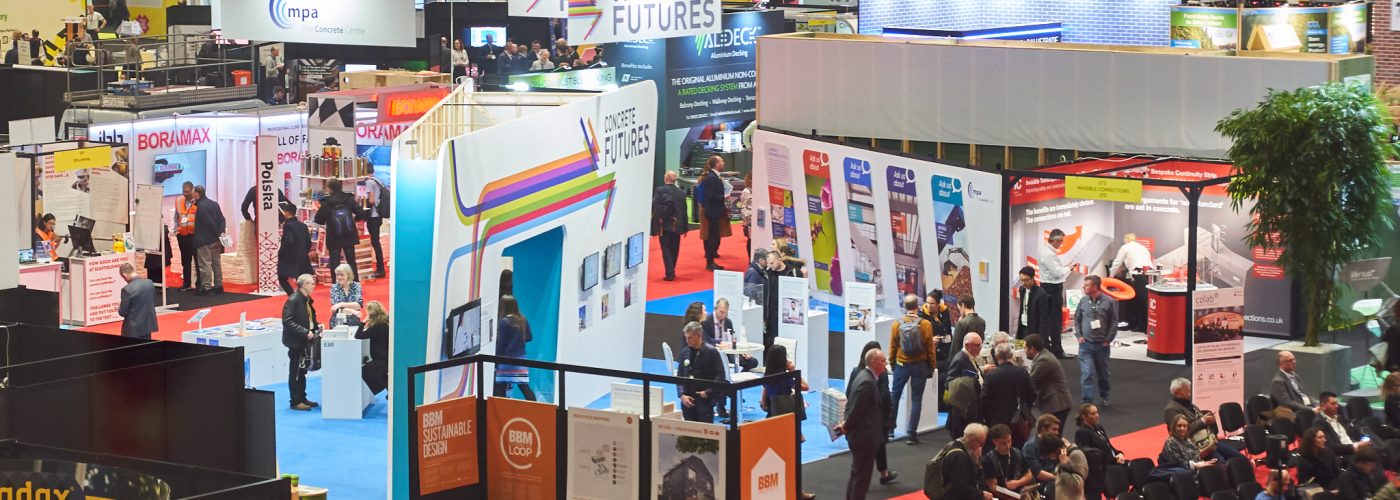Showcasing the technologies that will enable the built environment to reach net zero

The construction industry is one of the oldest and largest sectors in the world and plays a vital role in industrial, social and economic development. Despite its importance, the industry still uses traditional building techniques and materials that often gives it a reputation of being slow to innovate. Here, Martin Hurn, event director at sustainable built environment event Futurebuild, explains why this is not the case.
In November 2021, COP26 established that we must limit the global temperature rise to 1.5 degrees. Around 40 per cent of global CO2 emissions come from constructing, heating, cooling and demolishing buildings — so innovation in this sector is important now more than ever to reduce the construction industry’s carbon footprint.
Innovating the industry doesn’t require futuristic technology that hasn’t been invented yet — it requires us to create change by thinking differently or using technology to solve existing problems in new ways. There are some forward-thinking businesses who are already developing the materials, products and services that are changing the built environment.
The innovation trail at Futurebuild 2022 will showcase the companies who already have the tangible solutions that may solve the common challenges that the construction industry faces.
The innovation trail
Futurebuild’s innovation trail features a range of materials, products and technologies. 540 WORLD, for example, will showcase a variety of Cradle to Cradle Certified® materials including Accoya, a gold certified wood produced from a fast-growing pine. It’s more sustainable to produce than traditional hardwood, is anti-fungus and anti-mildew and does not require sanding or coating, which can be a drain on resources.
Drainage and surface water management systems specialist ACO will showcase its new Habitat Matters Mapping System. The new system was developed as part of ACO’s Habitat Matters campaign, which aims to reverse the impact the built environment has had on the natural world. The mapping system is a free tool that enables users to create a digital twin for the habitats and built environment asset they have designed, constructed or simply observed. The public can contribute to Biodiversity Net Gain (BNG) monitoring and record keeping and begin to understand how materials and buildings benefit the habitats around them.
Aico, a European market leader in high-quality alarms, aims to address the needs of social landlords and their residents with new HomeLINK Environmental Sensors. The sensors are designed to create better maintained, healthier, more energy efficient homes, by monitoring temperature, humidity and CO2.
Worcester Bosch is the UK leader in domestic boiler and renewable technologies. At Futurebuild 2022 Worcester Bosch will showcase its award-winning hydrogen-ready boiler prototype. The boiler can run on natural gas until hydrogen becomes readily available, saving costs all round and enabling homeowners to future proof for when they can switch to hydrogen.
C-Probe Systems will showcase its LoCem® Modular Anode Unit (MAU) — an impressed current cathodic protection (ICCP) component that can be attached directly to steel reinforcement in-situ or in the precast factory prior to pouring the concrete. Operators can use the system for repair, protection and monitoring of structural performance, removing future disruption through sustainable futureproofing tracking service life for whole life performance online.
At Futurebuild, The Concrete Centre will showcase Concrete Futures — a mix of physical exhibits and case studies that demonstrate how concrete is evolving and innovating to save carbon now and in the future. Visitors can access practical guidance on low carbon concrete, efficient design with concrete and find out how the sector will achieve net zero cement and concrete.
INTU Your Home reimagines everyday items, advanced technology to create the essential products for modern homes. Its INTU Evolution hot water taps, for example, are designed with safety, sustainability and speed in mind. The tap systems are not pressurised, which means quicker installation, less damage to the kitchen and reduced energy and water consumption over time.
James Latham, one of the UK’s largest independent trade distributors of timber, panels and decorative surfaces, has worked with the BioComposites Centre at Bangor University to develop a carbon calculator. The calculator publishes both the carbon footprint and embodied carbon values of its timber products, enabling specifiers, architects and designers to make more informed decisions when selecting materials.
Kensa Contracting is an award-winning specialist delivery partner and contractor for communal heating with district ground source heat pumps. Kensa’s networked Shoebox ground source heat pump solution will inspire the change needed to propel the construction industry to net zero and help equip new homes with low-carbon heating.
Standards organisation MCS certifies low-carbon products and installations used to domestically produce electricity and heat from renewable sources. Futurebuild visitors will see how MCS is shaping the way that low-carbon domestic renewables heat and power our homes, setting the standard for home-grown energy, giving consumers confidence in the vast array of technology available to them.
Construction management software provider Procore connects information and teams on one powerful and easy-to-use purpose-built platform. The platform provides full visibility, enabling users to understand exactly what’s going on across the project, make more informed decisions and improve operations, giving stakeholders confidence in their ability to deliver the project on time.
While the industry has a reputation for being slow to innovate, it is clear that there are pioneering industries who are already inspiring change in the built environment. The innovation trail at Futurebuild 2022 will demonstrate that by using the technology already at our disposal, the built environment can become more advanced, efficient and sustainable.
Visitors can also attend Futurebuild’s new Innovation Stage, sponsored by the Department for Business, Energy & Industrial Strategy, which will host live sessions from the Innovation Partners across the three days.
To visit the innovation trail at Futurebuild 2022, register for the event for free here.





